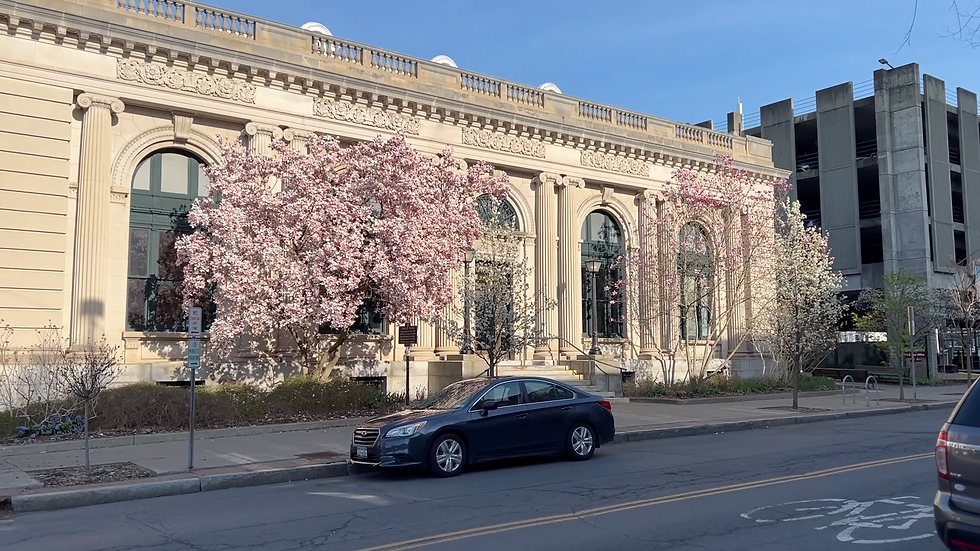So, Trump's "One Big Beautiful Bill" Has Passed. How Does It Affect Us?
- Allen Williams
- Jul 8, 2025
- 3 min read

If you live in Ithaca, you’ve probably heard about President Trump’s recently passed One Big Beautiful Bill—a sweeping piece of legislation that’s already making waves across the country. But what does it actually mean for us here in Tompkins County? With our community’s unique blend of students, families, small business owners, and progressive thinkers, this bill’s mix of tax cuts, program rollbacks, and funding shifts could have a complex and far-reaching impact. Whether you’re raising a family, navigating student loans, or concerned about healthcare access and environmental progress, here’s what this bill could mean for daily life in Ithaca.
What's In The Bill?
1. Big Tax Cuts & Credits
Permanently extends many of Trump’s 2017 tax cuts, as well as new deductions up to 2028 (e.g., for tipped income, overtime pay, U.S.-assembled car loans, and benefits for seniors) .
Child Tax Credit increases—from $2,000 to $2,200 per child, with inflation indexing and refundable portion rising .
SALT deduction cap raised temporarily to $30–40k for households under $500k income .
2. Welfare & Social Programs Rolled Back
$1.2 trillion+ in cuts to Medicaid (~12–18%), elimination of Planned Parenthood funding for a year, and tighter eligibility checks/work requirements .
SNAP food-stamp cuts—$200 billion over 10 years, work mandates raised, and more state-level cost-sharing .
3. Education & Student Loans
Caps on graduate student borrowing ($100K generally; $200K for medical/law school) plus restructuring income-driven repayment—longer timelines and fewer forgiveness options .
Adds private school voucher tax credits starting in 2027 .
4. Energy & Climate
Phases out many Biden-era clean energy credits, tilting tax treatment to fossil fuels and semiconductor manufacturing .
5. Defense & Border Security
Billions allocated: ~$150B for military upgrades, $150–175B for border and immigration enforcement—doubling ICE budget to over $100B by 2029, plus physical barriers .
Increase in ICE agents (up 10K) and detention capacity (100K beds) .
6. New Initiatives
“Trump Accounts”: $1K government-funded savings per newborn, plus tax-deferred “kids’ trust” up to $5K/year .
$40M funded for the National Garden of American Heroes sculpture project .
7. Deficit & Federal Debt
Adds $2.4–4 trillion to the deficit over the next 10 years; debt ceiling raised by $4–5T ().
What It Means for Ithaca Locally
For Middle-Class & Families
Potential savings for working families via expanded Child Tax Credit, and deductions for tips/overtime—helpful for Ithaca’s service workers and educators.
“Trump Accounts” could give new parents a small boost for children’s future expenses.
For Vulnerable Groups & Rural Healthcare
Medicaid cuts may strain rural and community health providers in surrounding Tompkins County, possibly affecting access for low-income and disabled residents.
SNAP restrictions could impact students, low-wage workers, and senior citizens relying on assistance.
For College Students & Borrowers
Ithaca College and Cornell grads may face higher borrowing costs and slower loan forgiveness timelines under stricter caps and repayment rules.
For Energy & Environment
Reduction in clean energy incentives could slow local clean-tech projects, solar adoption, or electrification—important in Ithaca’s sustainability-focused community.
For Immigration & Local Economy
Large federal investment in ICE and enforcement may not directly affect Ithaca, but could influence broader regional migrant policies and local labor markets.
Bottom Line
The bill leans heavily toward permanent tax relief and military, border, and ICE funding, balanced against steep cuts to social welfare, clean energy, and higher education supports. For Ithaca residents:
Winners: Middle-income families, working-class earners with tips/overtime.
Losers: Medicaid/SNAP-dependent individuals, student borrowers, renewable-energy stakeholders.
Feel free to leave thoughts in the comments.




Comments